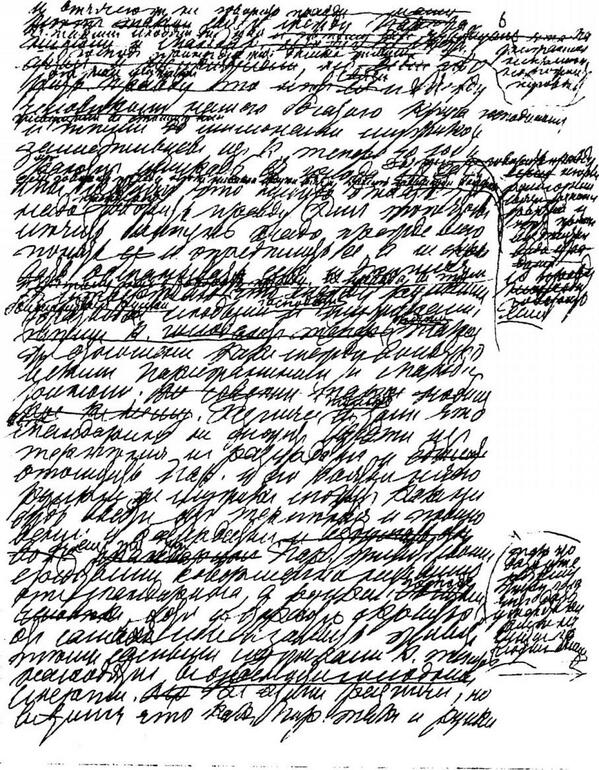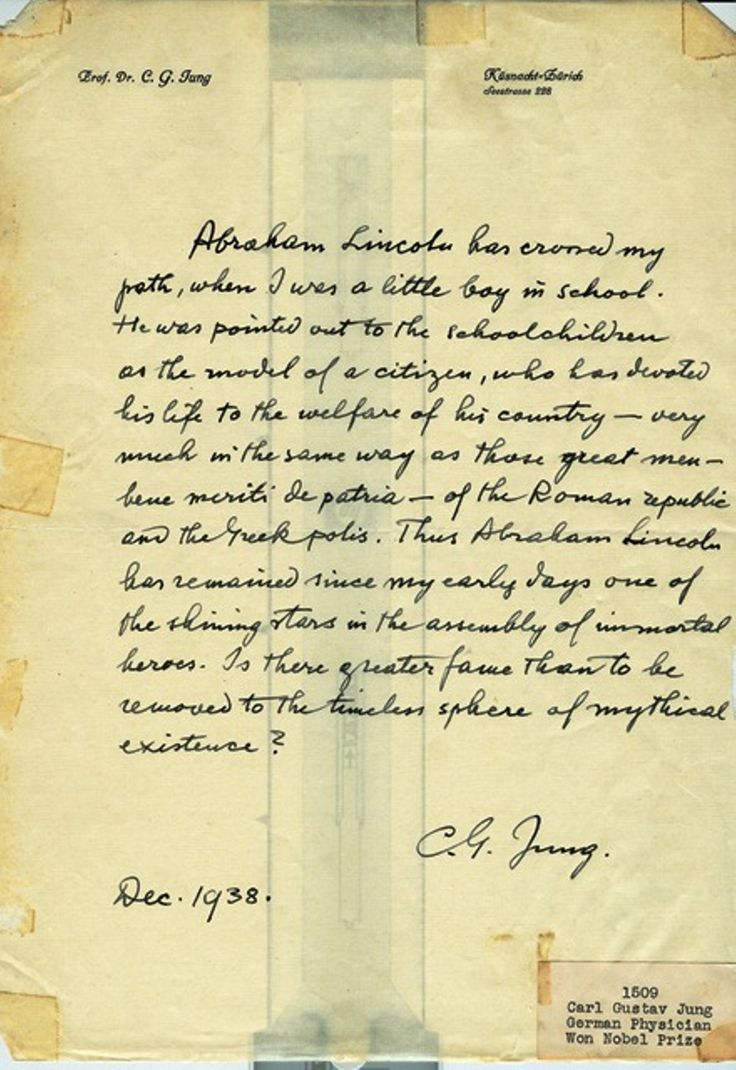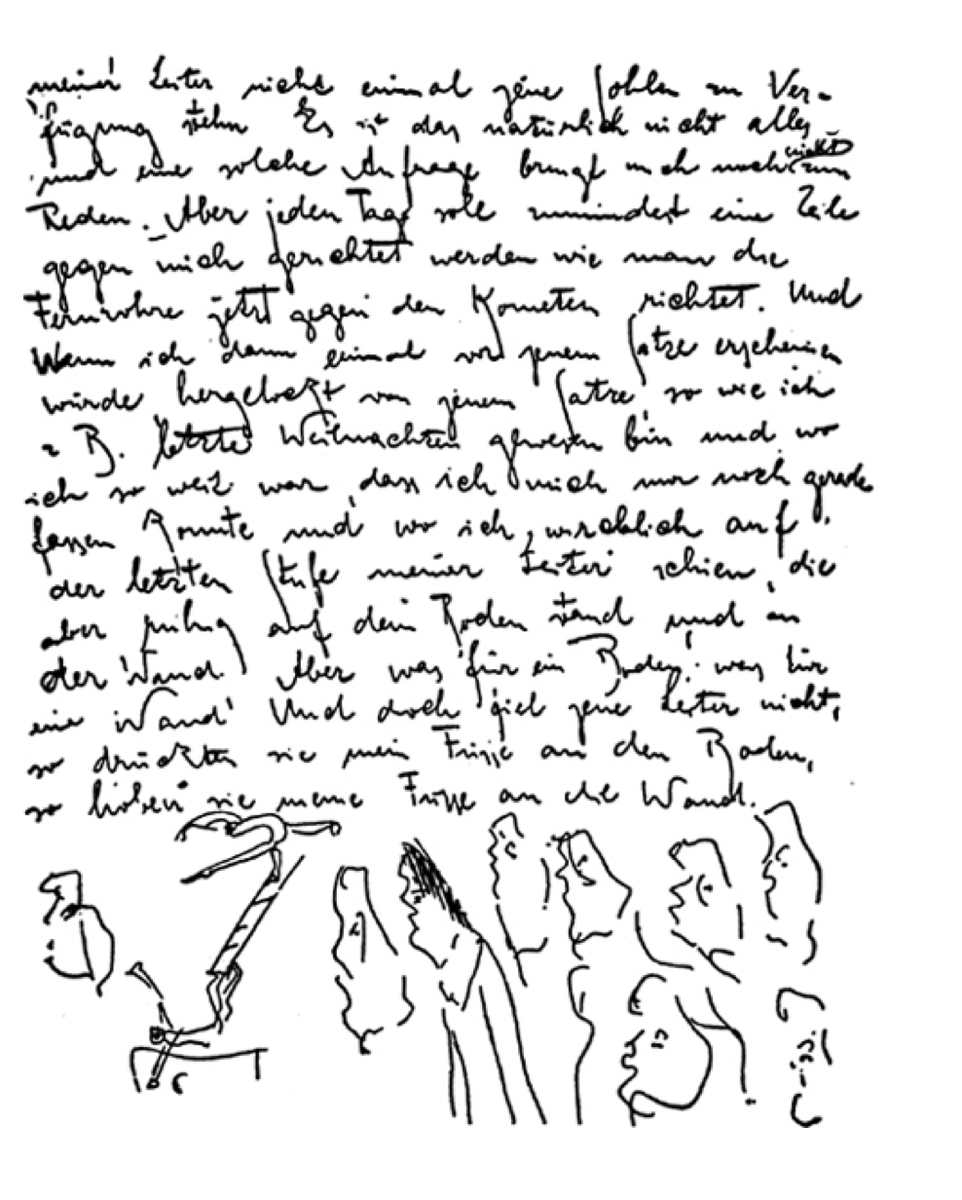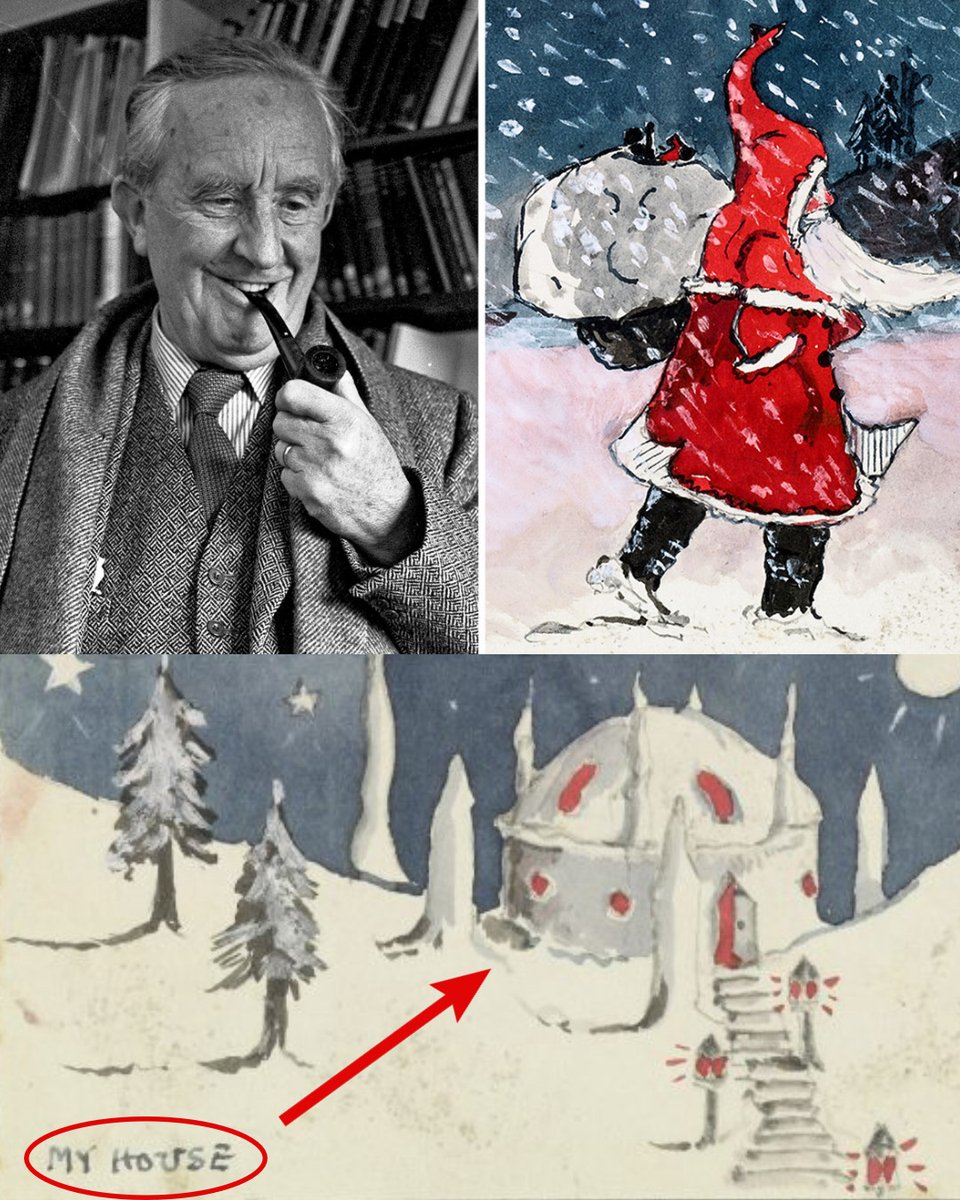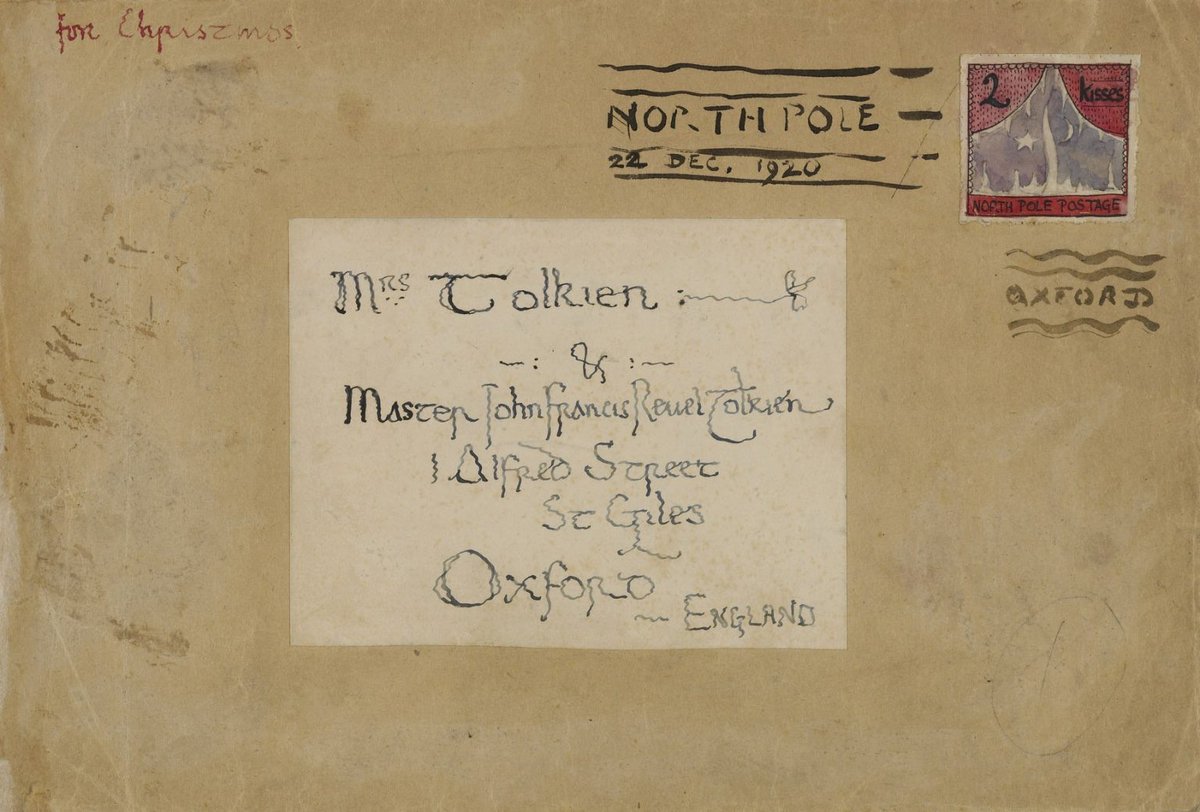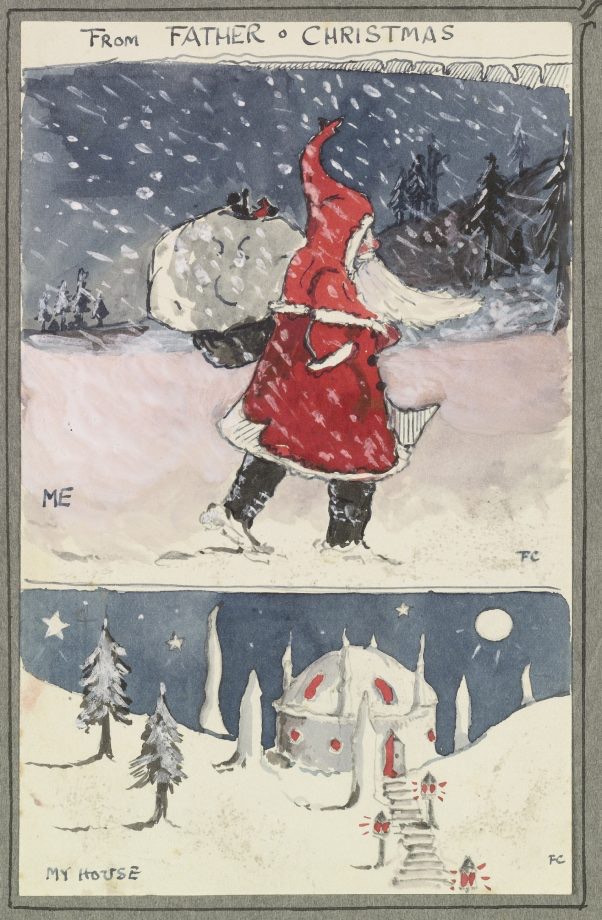The handwriting of famous authors - thread 🧵
1. Fyodor Dostoevsky's manuscript draft of The Brothers Karamazov
1. Fyodor Dostoevsky's manuscript draft of The Brothers Karamazov
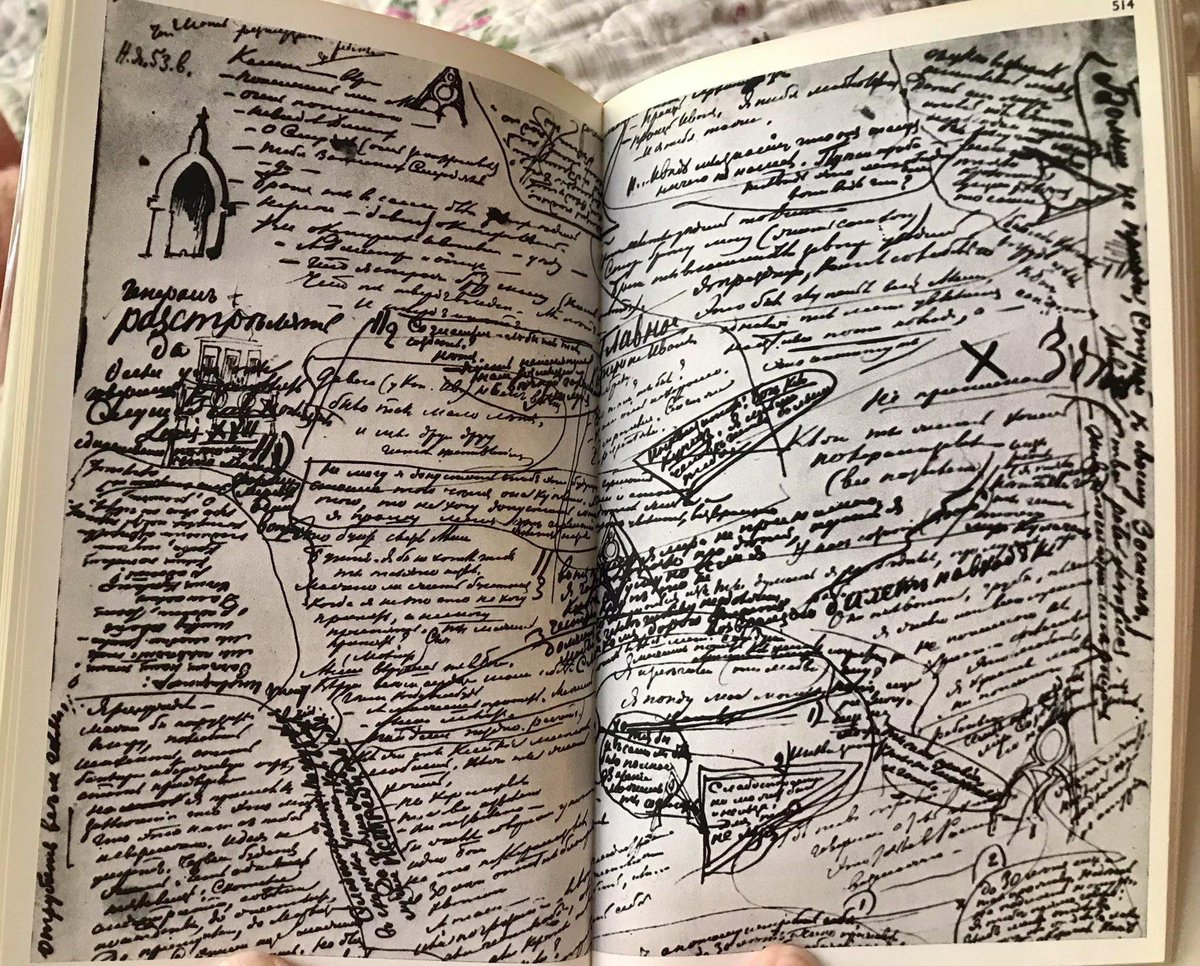
2. Even in his final hours, the night before he died, C.S. Lewis took time to write a letter to a child:
"Dear Philip, to begin with, may I congratulate you on writing such a remarkably good letter; I certainly could not have written it at your age. And to go on with, thank you for telling me that you like my books, a thing an author is always pleased to hear. It is a funny thing that all the children who have written to me see at once who Aslan is, and grown ups never do!"
"Dear Philip, to begin with, may I congratulate you on writing such a remarkably good letter; I certainly could not have written it at your age. And to go on with, thank you for telling me that you like my books, a thing an author is always pleased to hear. It is a funny thing that all the children who have written to me see at once who Aslan is, and grown ups never do!"
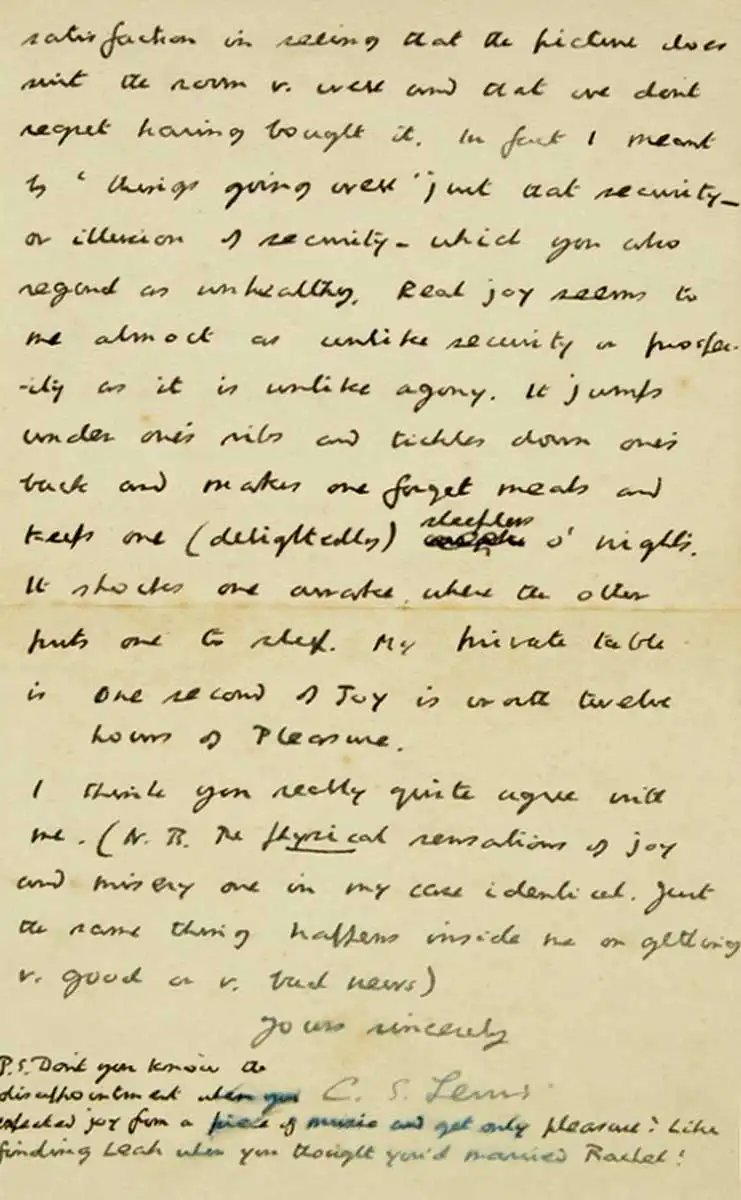
3. J. R. R. Tolkien's letter from Aragorn to Sam Gamgee, in which the King of Gondor informs the hobbit of his future visit and expresses his desire to "greet all his friends."
This handwritten letter, penned in Sindarin Tengwar, was created as an epilogue to The Lord of the Rings but was not included in the published edition.
This handwritten letter, penned in Sindarin Tengwar, was created as an epilogue to The Lord of the Rings but was not included in the published edition.
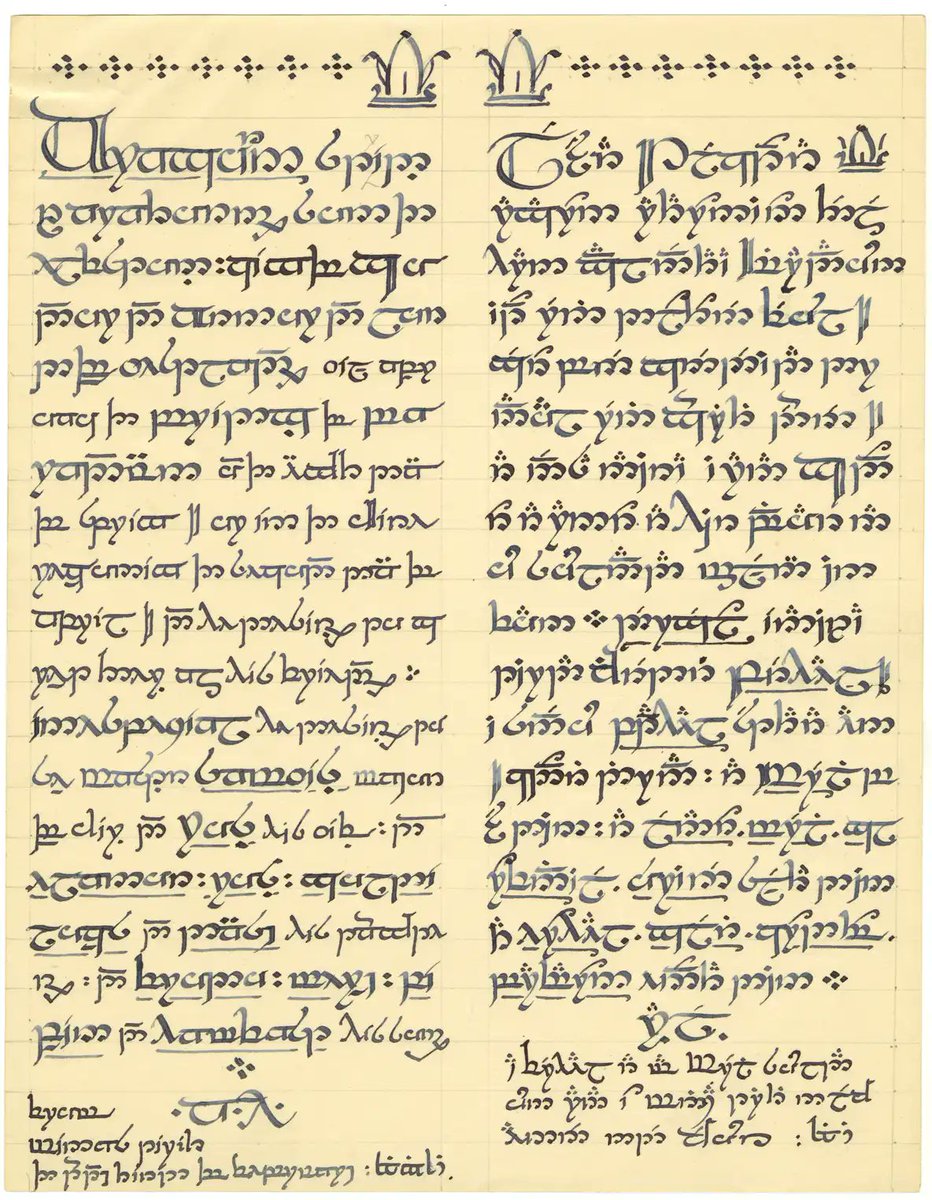
4. Having a bad day? Imagine being the editor who opened the mailbox to find this manuscript revised by James Joyce. 
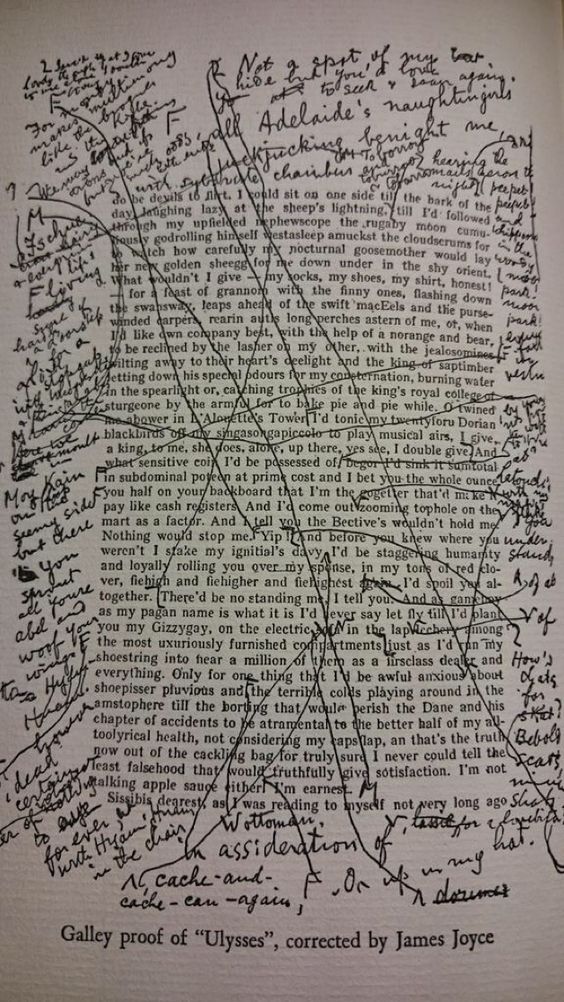
5. Leonardo da Vinci—the legendary left handed polymath—famously used mirror writing, where words appear reversed. To this day, his decision to use this method remains a topic of debate among experts:
• Many suggest that it prevented smudging, common for left-handed writers
• Some propose it as a form of reinforcement learning
• Others argue it hindered idea theft
• Many suggest that it prevented smudging, common for left-handed writers
• Some propose it as a form of reinforcement learning
• Others argue it hindered idea theft

7. Friedrich Nietzsche announces the title of his new book (Thus Spoke Zarathustra) in a letter to Heinrich Köselitz. 

8. In 2022, esteemed scholar Virgiliano Rodolfo Signorini urged caution regarding a potentially groundbreaking discovery: a 1295 parchment possibly bearing Dante Alighieri's signature.
This could be the first example of handwriting attributed to Italy's 'national poet' and the father of modern Italian.
This could be the first example of handwriting attributed to Italy's 'national poet' and the father of modern Italian.

9. F. Scott Fitzgerald conjugates "to Cocktail," the Ultimate Jazz-Age Verb, in a 1928 letter to Blanche Knopf. 

12. A 1974 copy of The Gulag Archipelago with a magnificent inscription by Nobel prize–winner Aleksandr Solzhenitsyn 

13. In May 1889, as Walt Whitman was approaching his seventieth birthday, Mark Twain wrote a letter of congratulations to "the father of free verse.” 

16. George Orwell's 1984 manuscript
"The three slogans of the Party:
War is Peace
Freedom is Slavery
Ignorance is Strength"
"The three slogans of the Party:
War is Peace
Freedom is Slavery
Ignorance is Strength"

20. This Edgar Allan Poe’s letter pleading for $40 from a Philadelphia editor was sold 173 years later for $125,000. 

22. Herman Melville declines to write encyclopedia entries: "I am unpracticed in a kind of writing that exacts so much heedfulness" (December 11, 1887) 

Thank you for reading! If you enjoyed this thread, please share the post and follow our work @CLT_Exam. We are bringing traditional/classical education back to America! Some other great accounts to follow: @soren_schwab, @A_C_C_S, @alecmbianco, @goodwind67, @HootenWilson, @AnikaFreeindeed, @jennfrey, @Culture_Crit
@CLT_Exam @soren_schwab @A_C_C_S @alecmbianco @goodwind67 @HootenWilson I have also recently discovered @JamesLucasIT. He is one of the most electric accounts on this platform. His work inspired this thread. If you are not already following James you need to!
• • •
Missing some Tweet in this thread? You can try to
force a refresh





